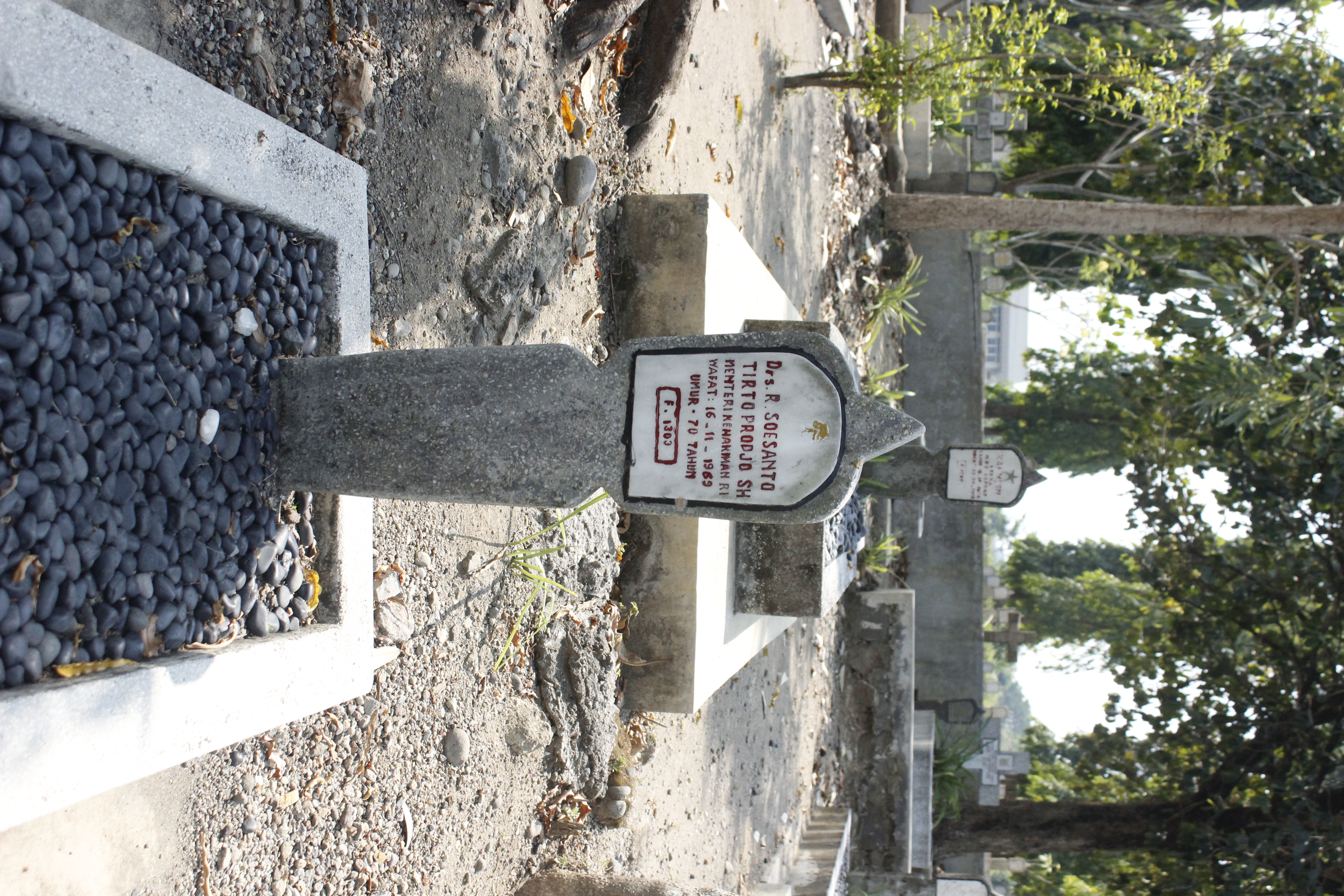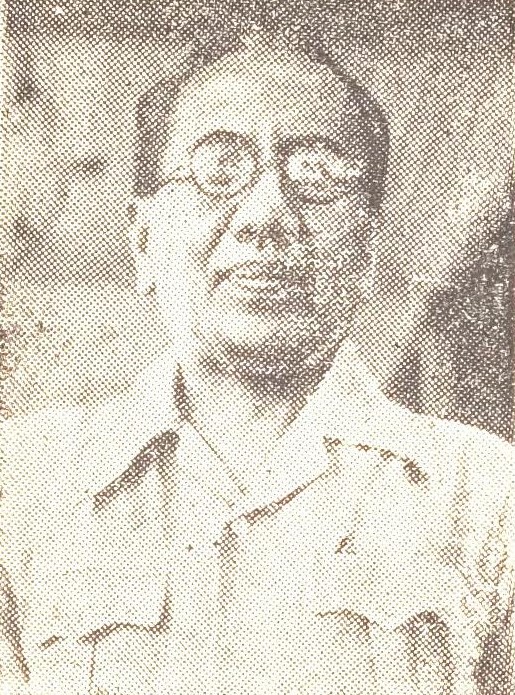1. Early Life and Education
Susanto Tirtoprodjo's early life was marked by his upbringing in the Dutch East Indies and a rigorous legal education that prepared him for his future contributions to independent Indonesia.
1.1. Birth and Family Background
Susanto Tirtoprodjo was born on 3 March 1900, in Surakarta, then part of Midden Java in the Dutch East Indies. He held the Javanese noble title of Raden Mas, indicating his aristocratic lineage. He later passed away in his hometown of Surakarta, which by then was part of Central Java, Indonesia, on 16 November 1969.
1.2. Education
Tirtoprodjo pursued higher education in law at Leiden University in the Netherlands, a prestigious institution known for its strong legal programs. He successfully completed his legal studies and graduated with a law degree in 1925, earning the title of Meester in de rechten (Mr.), equivalent to a Master of Laws.
1.3. Early Professional Career
After graduating from Leiden University, Susanto Tirtoprodjo embarked on a career in the judicial system within the Dutch East Indies. He successively worked in various courts, serving in Yogyakarta, Bogor, Kebumen, and Kediri. During the period of the Indonesian independence movement, he became actively involved in political organizations. He joined the Partai Indonesia Raya (Great Indonesia Party) in Surabaya, where he played a role in the party's administration, signaling his early commitment to the nationalist cause.
2. Role in Independence and Early Republic
Susanto Tirtoprodjo's involvement in the Indonesian independence movement was foundational, placing him at the heart of the efforts to establish the new nation.
2.1. Investigating Committee for Preparatory Work for Independence (BPUPK)
Susanto Tirtoprodjo was a member of the Investigating Committee for Preparatory Work for Independence (BPUPK), also known by its Japanese name, Dokuritsu Junbi Chōsakai. This committee was a crucial body established in 1945 by the Japanese occupation forces to prepare for Indonesia's independence. Its primary task was to lay the groundwork for the new state, including drafting a constitution and outlining the fundamental principles of governance. His participation in this committee underscored his early involvement in shaping the future of Indonesia.
2.2. Emergency Government of the Republic of Indonesia (PDRI)
During the Indonesian National Revolution, particularly amidst the Second Dutch Military Aggression in 1948 when the republican leadership was captured, the Emergency Government of the Republic of Indonesia (PDRI) was formed in Sumatra under Sjafruddin Prawiranegara. Susanto Tirtoprodjo was entrusted with significant responsibilities within the PDRI's Commissariat in Java. From 31 March 1949 to 13 July 1949, he served as the Vice Chairman of the PDRI, concurrently holding the portfolios of Minister of Justice and Minister of Information for the Java Commissariat. His role was vital in maintaining the continuity of the republican government's operations and legal authority on Java during this challenging period.
3. Government Service and Political Career
Susanto Tirtoprodjo held numerous high-ranking government positions during the formative years of the Indonesian Republic, demonstrating his enduring commitment to public service.
3.1. Acting Prime Minister
Susanto Tirtoprodjo served as the acting Prime Minister of Indonesia for the Republic of Indonesia from 20 December 1949 to 21 January 1950. This brief but significant tenure occurred immediately after the Dutch-Indonesian Round Table Conference, when the Netherlands formally recognized Indonesia's independence. He was sworn in rapidly alongside Mohammad Hatta, who subsequently became the Prime Minister of the United States of Indonesia, a federal state established as a transitional entity. Tirtoprodjo's role as acting Prime Minister was crucial in facilitating the transition of power and establishing the initial administrative structures of the newly recognized republic. He succeeded Mohammad Hatta in this acting capacity and was succeeded by Abdul Halim.
3.2. Minister of Justice
Tirtoprodjo had an extensive career as Minister of Justice, holding the position across six different cabinets from 2 October 1946 to 21 January 1950. His appointments included serving in the Sjahrir III Cabinet, the Amir Sjarifuddin Cabinet, and the Hatta II Cabinet. In this role, he was responsible for the nation's legal system during a period of significant upheaval and nation-building. His predecessors included Soewandi and Soepomo, and his successors were Abdoel Gaffar Pringgodigdo and Soepomo. During some of his tenures, he was assisted by junior ministers such as Hadi and Kasman Singodimedjo.
3.3. Minister of Home Affairs
From 20 December 1949 to 6 September 1950, Susanto Tirtoprodjo served as the Minister of Home Affairs, holding the eighth such appointment in Indonesian history. During his term, he served under his own acting premiership and later under Prime Minister Abdoel Halim. His responsibilities included overseeing the internal administration and governance of the nascent state. He succeeded Wongsonegoro and was succeeded by Assaat.
3.4. Governor of Lesser Sunda Islands
Susanto Tirtoprodjo was appointed as the second Governor of the Lesser Sunda Islands from 16 October 1950 to 12 February 1952. In this gubernatorial role, he was responsible for the administration of the islands, working under President Sukarno. He succeeded I Gusti Ketut Pudja and was succeeded by Sarimin Reksodihardjo.
3.5. Other Ministerial and Administrative Roles
Beyond his prominent ministerial and gubernatorial positions, Tirtoprodjo held several other significant administrative roles in the early years of Indonesian independence. He served as the Regent of Ponorogo and the Resident of Madiun from 1945 to 1946. During the period of the United States of Indonesia (1949-1950), he led the Transitional Cabinet. He also became a member of the Partai Nasional Indonesia (PNI), one of Indonesia's major political parties.
4. Diplomatic and Legal Contributions
Susanto Tirtoprodjo's expertise extended to the international arena and the crucial development of Indonesia's legal framework.
4.1. Diplomatic Representation
Tirtoprodjo represented Indonesia on the international stage, particularly in Europe. He served as the Ambassador of Indonesia to France in Paris from 1955 to 1959. In this capacity, he played a vital role in strengthening diplomatic ties between Indonesia and France. He succeeded Ida Anak Agung Gde Agung and was succeeded by Tamzil Gelar Sutan Narajau. He also represented Indonesia in Holland, further solidifying the young nation's presence in international relations.
4.2. Legal Institutions and Development
A dedicated legal scholar, Susanto Tirtoprodjo also contributed significantly to the development of Indonesia's legal institutions. He served as the head of the National Institute of Legal Studies, an important body for legal research and education. Furthermore, he led the Institute of National Legal Development, which was tasked with the ambitious project of drafting a new civil code for Indonesia. This crucial work aimed to establish a comprehensive and modern legal framework for the independent nation, a task he continued until falling ill in 1964.
5. Personal Life
Susanto Tirtoprodjo was married to Raden Ayu Wasiti Tinah, who was the daughter of Koesoemo Oetoyo, a notable figure in his own right. Their marriage resulted in four children: Susantinah Tirtoprodjo, Sutiono Tirtoprodjo, Susantini Tirtoprodjo, and Modjo Tirtoprodjo.
6. Awards and Honors
For his extensive and dedicated service to the nation, Susanto Tirtoprodjo was bestowed with several prestigious national honors by the Republic of Indonesia in 1960. These awards recognized his contributions to the independence struggle and the development of the state.
- Bintang Gerilya (Guerrilla Star): Awarded in 1960, this medal recognizes individuals who demonstrated exceptional bravery and service during the Indonesian National Revolution.
- Bintang Mahaputera Utama (Main Star of Mahaputera): Awarded in 1960, this is one of Indonesia's highest civilian honors, recognizing extraordinary service to the nation.
7. Later Life and Death
Susanto Tirtoprodjo spent his final years in his hometown. He passed away on 16 November 1969, in Surakarta, Central Java, Indonesia, at the age of 69. His remains were interred at the Taman Makam Pahlawan Kusuma Bhakti (Kusuma Bhakti Heroes' Cemetery) in Surakarta, a burial ground dedicated to national heroes.

8. Legacy and Assessment
Susanto Tirtoprodjo's legacy is defined by his multifaceted contributions to the birth and early development of the Republic of Indonesia. As a lawyer, politician, and diplomat, he played a pivotal role in establishing the legal and administrative foundations of the new state. His consistent presence in various key ministerial positions, including multiple tenures as Minister of Justice, underscores his expertise and commitment to building a robust legal system for the independent nation. His participation in the BPUPK and his service in the PDRI during the revolution highlight his direct involvement in the struggle for sovereignty. Furthermore, his diplomatic efforts helped establish Indonesia's presence on the international stage. His work in leading legal development institutes, aimed at drafting a new civil code, demonstrates his foresight in shaping Indonesia's long-term legal future. Tirtoprodjo is remembered as a dedicated public servant whose actions significantly contributed to the stability and progress of the young Indonesian Republic.
